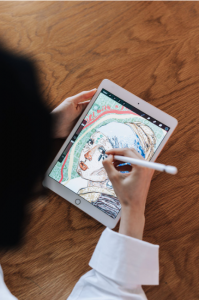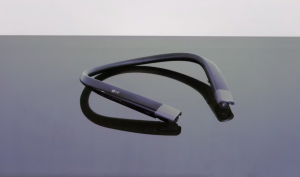From Sci-Fi to Reality: Unveiling the Latest Smart Tech Wonders
5 min read
As technology continues to evolve at an astonishing pace, it is becoming increasingly evident that what was once considered science fiction is now becoming a tangible reality. From smart homes that anticipate our every need to autonomous vehicles navigating our roads, the latest smart tech wonders are transforming the way we live, work, and interact with the world around us. In this article, we will explore the fascinating journey of how sci-fi has inspired real-world technological innovations and the impact these advancements have on society.
Sci-Fi Inspiration
Science fiction has long served as a creative playground for visionary writers and filmmakers, often presenting ideas that were considered far-fetched at the time but ultimately spurred technological innovation. Concepts like AI-powered virtual assistants, holographic displays, and wearable tech were first depicted in sci-fi stories, laying the foundation for real-life developments.
Examples of Smart Tech in Sci-Fi
Popular sci-fi franchises like Star Trek showcased communicators that resemble modern-day smartphones, while movies like Minority Report introduced gesture-based interfaces that influenced real-world touch-screen technology. Additionally, the idea of self-driving cars originated from science fiction works, and today, autonomous vehicles are becoming a common sight on our roads.
Smart Homes
Advancements in Home Automation
Smart homes have emerged as one of the most promising applications of smart technology. Through interconnected devices and sensors, homeowners can control various aspects of their living spaces remotely. From adjusting the thermostat to setting up personalized lighting and security systems, home automation has revolutionized modern living.
AI Assistants for Smart Homes
Artificially intelligent assistants like Siri, Alexa, and Google Assistant have brought voice-activated control to smart homes. These AI companions can answer questions, perform tasks, and interact with other smart devices, making homes more efficient and user-friendly.
IoT Devices and Connectivity
The Internet of Things (IoT) has enabled seamless communication between devices, further enhancing the capabilities of smart homes. From smart refrigerators that can track food supplies to home energy management systems, IoT integration has made our lives more convenient and sustainable.
Wearable Tech
Smartwatches and Health Monitoring
Smartwatches have gone beyond being mere accessories, evolving into powerful health monitoring tools. These devices can track heart rate, sleep patterns, and physical activity, empowering users to take control of their well-being.
AR/VR Integration in Daily Life
Augmented Reality (AR) and Virtual Reality (VR) technologies have opened up new possibilities in various industries. From gaming and entertainment to training and education, AR/VR integration is reshaping how we perceive and interact with the world.
Futuristic Implants and Enhancements
While still in its infancy, the concept of futuristic implants is gaining traction. From microchips under the skin for identification to bionic limbs that restore mobility, these advancements have the potential to transform the lives of individuals with disabilities.
AI and Robotics
AI in Industries and Everyday Life
Artificial Intelligence has made significant strides in various industries, automating processes, and improving efficiency. From personalized recommendations in online shopping to AI-driven healthcare diagnoses, the impact of AI is profound.
Humanoid Robots and Their Uses
The development of humanoid robots is bridging the gap between fiction and reality. These robots can assist with tasks ranging from elder care to disaster response, showcasing their potential to improve the quality of life for humans.
Ethical Considerations in Robotics
As robotics technology advances, ethical questions surrounding robot rights, accountability, and human-robot relationships are becoming more pressing. Addressing these concerns is essential to ensure the responsible and beneficial use of robotics.
Autonomous Vehicles
Self-Driving Car Technology
Autonomous vehicles are on the cusp of revolutionizing transportation. With advanced sensors and AI algorithms, self-driving cars promise safer roads and increased accessibility for people with mobility challenges.
Benefits and Challenges of AVs
While autonomous vehicles hold tremendous promise, there are challenges to address, including regulatory hurdles, cybersecurity concerns, and potential job displacement in the transportation sector.
Space Exploration
Robots in Space Missions
Robots and rovers have been instrumental in exploring distant planets and celestial bodies. Their ability to withstand harsh environments and conduct experiments in space has expanded our understanding of the cosmos.
Colonization and Beyond
Science fiction often depicted human colonization of other planets, and as space exploration advances, the possibility of interplanetary colonization becomes a tangible goal for humanity’s future.

Real-World Impact
The convergence of smart technologies is transforming various industries and improving our quality of life.
Advancements in Healthcare
Smart tech has revolutionized healthcare with telemedicine, wearable health devices, and AI-assisted diagnostics, providing accessible and personalized medical care.
Environmental Sustainability
From smart energy management to sustainable agriculture, smart tech solutions are paving the way for a more eco-friendly future.
Education and EdTech Innovations
Incorporating smart tech in education enhances learning experiences and equips students with essential skills for the digital age.
Challenges Ahead
As we embrace the wonders of smart technology, several challenges demand our attention.
Privacy and Security Concerns
The vast amount of data generated by smart devices raises privacy and security concerns, necessitating robust measures to safeguard personal information.
Technological Disparities
Ensuring equitable access to smart tech is crucial to avoid deepening existing technological disparities among different communities.
Conclusion
The journey from sci-fi to reality has been both fascinating and transformative. As smart tech continues to evolve, the possibilities seem boundless, and the responsibility lies with us to harness these innovations responsibly and ethically, ensuring a better and brighter future for all.
FAQs
- Are smart homes becoming a common feature in today’s housing market?
- Yes, smart home technology is becoming increasingly prevalent, with many new homes incorporating automation and IoT devices.
- How accurate are AI-powered virtual assistants like Siri and Alexa?
- AI-powered virtual assistants have improved significantly and are now capable of understanding complex queries and providing accurate responses.
- What industries benefit the most from AI integration?
- Industries such as healthcare, finance, retail, and manufacturing have seen significant benefits from AI integration.
- Are there any limitations to self-driving car technology?
- Self-driving car technology still faces challenges related to handling extreme weather conditions and complex urban environments.
- Can wearable tech like smartwatches replace traditional medical monitoring devices?
- While wearable tech shows promise in health monitoring, it may not entirely replace traditional medical devices but can complement them in various ways.






